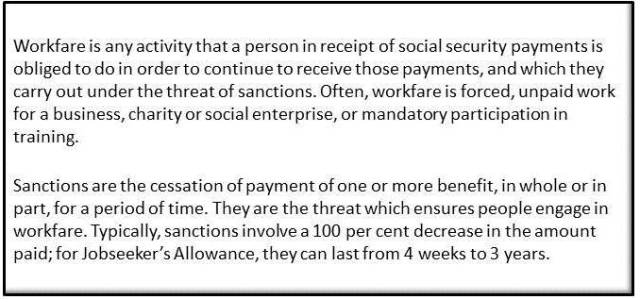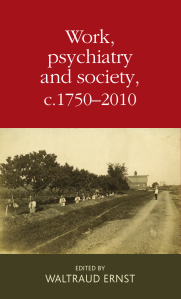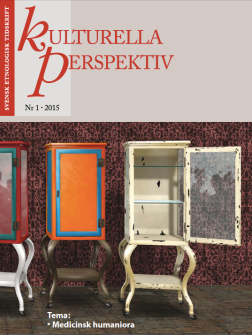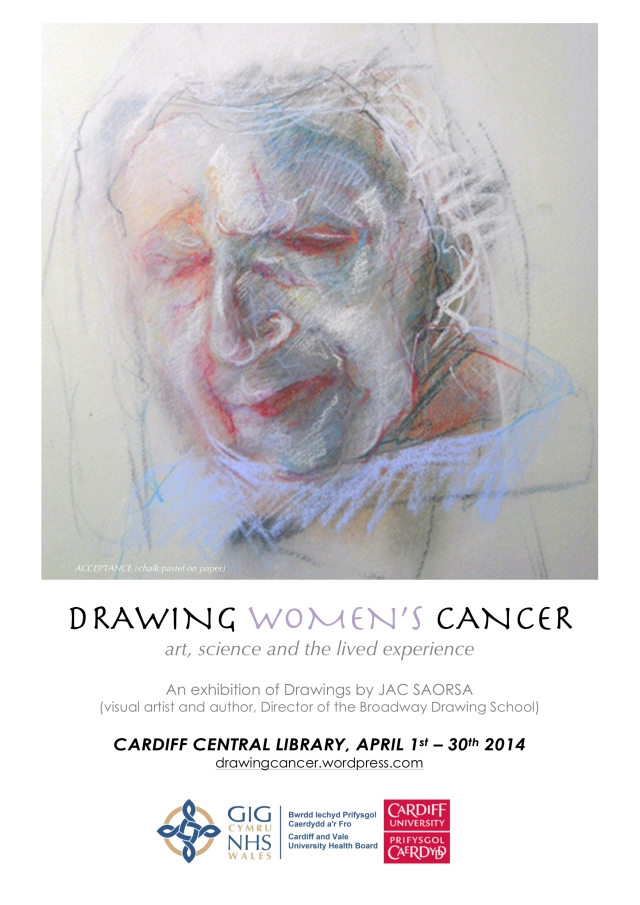In this post, Lynne Friedli and Robert Stearn look at the role of psychological coercion, notably through the imposition of positive affect, in UK Government workfare programmes. There has been little or no debate about the recruitment of psychology/psychologists into monitoring, modifying and/or punishing people who claim social security benefits. This silence raises important ethical questions, including about the relationship of psychology to the medical humanities.
Whistle while you work (for nothing): positive affect as coercive strategy
– the case of workfare [1]
The growth and influence of discourses of positive affect in systems of governance and ‘technologies of the self’ has been widely observed.[2] ‘Strengths based discourse’ is a significant policy imperative in health and welfare reform[3] and underpins ‘the application of behavioural science and psychology to public policy’ via the UK government’s Behavioural Insights Team (BIT) or ‘nudge unit’. Positive affect plays an important supporting role in policy preoccupations with how best to manage the intersection of long term conditions and long term unemployment, exemplified in the shift from rest cure, (signified by the sick note), to work cure, (signified by the fit note).
The deployment of positive affect within the active labour market policies pursued by both Labour and the Coalition is legitimated by and reinforces the economic model that UK governments have drawn on over the last thirty years, according to which long-term unemployment is itself a barrier to employment. Unemployment – ‘worklessness’ – is held to be a harmful attribute that people may acquire, linked to ideas of debility and dependency, which makes them less employable. Hence interventions designed to change individuals’ behaviour and tackle their alleged loss of ‘employability’ are posited as a reasonable approach to a macroeconomic problem.[4] Workfare is increasingly central to such policy, combining twin imperatives of this supply-side package, this relentless focus on claimants: to change the behaviour of people whose employment-related behaviour is deemed inadequate and to make life lived on subsistence benefits (even) more punitive and less viable.
So the use of positive affect in the delivery of workfare has far ranging consequences for people who are unemployed, sick, disabled or in ‘in work’ poverty (i.e. deemed not to be working enough hours, or not doing enough to secure ‘better paid work’). This includes mandatory participation in ‘positive psychology’ courses and the use of psychological referral as punishment for non-compliance (regulated and ad-hoc) with the new regimes of welfare conditionality to which people claiming out of work benefits (or in future, universal credit) are subject. In addition to those currently claiming benefits, those who could be at risk of doing so – notably those currently adopting ‘unhealthy behaviours’ – are also regularly subjected to the blandishments of positive thinking.[5] Populations ‘marked out for wearing out’ as Lauren Berlant puts it.[6] Central themes include positive affect as ‘health asset’ and potent form of personal capital – in other words, positive affect as a substitute for income and security: ‘cruel optimism’ indeed.
These developments mean that positive psychology is now as significant a feature of conditionality in the lives of those who are poor as going to church once was, and they share a common evangelical language: ‘something within the spirit of individuals living within deprived communities that needs healed’ (SCDC 2011, 3). Unfortunately, the compulsions of positive affect are not confined to Sundays.
I am shy and have difficulty speaking to people and I will not do play acting in front of a group of people I am very uncomfortable with…. I was told I would be sanctioned if I didn’t take part, so I said I would get up, but I am not speaking…. After that, we had to fill out yet another ‘benefits of being assertive’ sheet.[7]
‘he was determined to change my ‘being’ which was apparently what is preventing me from getting a job …. The main point which was hammered home time and again was that if we believed we could get a job, then it would happen. It was simply our mindset that was the barrier and he seemed intent on us all having mini epiphanies there and then. ‘[8]
The choice was to accept psych eval, or go straight to MWA… [9]
The rise of psychological coercion, ‘positive affect as coercive strategy’, and the recruitment of psychology/psychologists into monitoring, modifying and/or punishing people who claim social security benefits raises important ethical questions about psychological authority ( being ‘nasty in a nice way’ – as one person on Job Seekers’ Allowance (JSA) put it). It also invites reflection on the rarity of challenges to the authority of psychology, (Whitehead’s ‘emerging cartel of psychocrats’), given its central role in the legitimising and implementation of workfare .[10] So our first question concerns the relationship between psychology and psychologists and the field of medical humanities – critical or otherwise.
The complex supply chains of the Work Programme, which makes heavy use of the voluntary sector, make this question and the self-scrutiny it ought to provoke more pressing. Such complexity serves to insulate charitable organisations (who advise or provide services for contractors, or who arrange and benefit from placements) from the decision of whether or not to sanction claimants and from accountability for the consequences.
Compulsory positive affect and psychological authority are being applied in workfare in three (overlapping) ways:
- to identify psychological barriers to gaining employment
- to punish people for non-compliance
- to inculcate attributes and attitudes said to increase employability
Psychological barriers: lack of motivation
One of the criteria for being sent on Community Work Placements[11] is ‘lack of motivation’, regarded in the policy literature as a significant impediment to gaining employment – although how lack of motivation is defined and identified is vague and random. Eligibility for both out of work and in work benefits is now explicitly contingent not only on certain behaviours, but also on possession of the right affect: conditions placed on who can receive social security are confused with demands on what recipients are and do, and disallowances (questionable on other grounds) are confused with sanctions, both to the detriment of claimants.[12] Failure to be ‘actively seeking work’ accounts for the biggest share of the colossal – and accelerating – increase in sanction rates since 2004.[13]
The consistent failure of Work Programme interventions to improve work outcomes has resulted in a much greater focus on psychological or ‘soft outcomes’ – motivation, confidence, ‘job-seeking behaviour’, ‘a positive change in attitude to work’ – said to ‘move people closer to work’.[14] The pool of forced work options available – the number of different workfare schemes, along with traineeships, apprenticeships, and intermediate labour markets, in combination with bogus self-employment and short-term or part-time minimum wage work (participation in all of which is compelled directly or indirectly by sanctions) – creates a field within which affect becomes a major criterion for measuring one claimant against another. An individual can shuttle between schemes, their work entirely disengaged from pay, which becomes an attribute of mindset: a wage, if ever introduced, will ‘more faithfully replicate the experience of work’.[15]
Efforts to achieve these soft outcomes – the right affect – are evident in the course content of mandatory training programmes run by major workfare contractors like A4e and Ingeus. The A4e Engage Module states: ‘to appreciate the importance of mindset to employers’ : students will learn how to develop the right mindset which will appeal to employers. Other elements of this module are assertiveness, confidence, benefits of work, motivation, enhance your mood.
It’s worth reiterating here what these and other supported job search activities involve. They are mandatory: refusal to participate can and does result in sanctions, plunging people into absolute poverty. Sanctions are a significant factor in the escalating use of food banks. These activities may involve tasks experienced as humiliating and pointless by job seekers. There is no evidence that these interventions increase the likelihood of gaining decent paid work. In perpetuating notions of psychological failure, they shift attention from market failure and the growth of in-work poverty. They contribute to the wider role of psychology in the validation of an increasingly narrow range of attributes – self efficacy, aspiration, optimism, positive thinking, assertiveness – with no reference to the contested nature of these terms or their ideological underpinnings and the processes through which they acquire social value and economic reward.
‘Basically what I’m saying in short is that I feel there is no place in society for a quiet, shy, creative person like me. And now I feel I don’t even deserve to call myself creative, because I don’t even do that anymore, because I am too depressed’ [16]
Non-compliance
There are a number of personal testimonies of people being referred to a psychologist for non-compliant behaviour e.g. asking to record interviews with job centre advisors or raising questions:
‘ I have been claiming Jobseeker’s Allowance for about 8 weeks. I haven’t sworn or shouted at anyone. I have had 3 advisor interviews already; yesterday my adviser asked me to see their psychologist. I did not consent. I have been told that I shouldn’t look into things too deeply… and that I am asking too many questions…. They were concerned that there might be ‘some undiagnosed mental illness’ which they said they were unqualified to identify’ (email to Boycott Workfare)
Increasing positive affect
In addition to mandatory training informed by positive psychology, claimants are subjected to a wide range of strengths based interventions, including on-line psychometric testing ( ‘failure to comply may result in loss of benefits’).[17] As Cromby and Willis have noted, not only was the Values in Action (VIA) ‘Inventory of Signature Strengths’ test recently imposed on claimants known to have failed validation, every aspect of its use contravened the British Psychological Society’s ethical code.[18]
The messages in the course handout for the A4e (mandatory) ‘Healthy Attitudes for Living’ course take these themes a step further, intended, perhaps, to counter any residual yearnings in the ‘job seeker’ for either justice or security.
‘Sometimes life’s just plain unfair. Bad things happen to the nicest of people. On top of being unfair, life’s unpredictable and uncertain a great deal of the time. And really, that’s just the way life is…. ‘
‘Life’s unfair to pretty much everyone from time to time. If you can accept the cold hard reality of injustice and uncertainty, you’re far more likely to bounce back when life slaps you in the face. You’re also less likely to be anxious about making decisions and taking risks. But remember, you can still strive to play fair yourself ‘
– A4e Healthy Attitudes for Living
The reminder that ‘you can still play fair yourself’ delegates the role of ‘playing fair’ to people in situations of poverty and unpaid labour and of course also tends to pre-empt reflection on structural injustice.[19]
This general conspiracy of optimism, normative cheerfulness and resilience in the face of adversity, is part of a larger problem of the denial of pain,[20] companion to denial of the problem of neoliberal economics. Positive affect as it is now deployed constitutes a more and more arduous and demeaning array of tasks whose insufficient performance is a sanctionable offence. Working on these deficits becomes the full time unpaid labour of millions of people, which, together with mandatory job search activities, ensures that these days, people who are poor have both no money and no time.
Conclusion
In thinking about positive affect as psychological coercion, we have felt that the whole area of workfare is under-theorised. Perhaps partly because a surprising range of people subscribe to the view that both positive affect and work are deeply desirable, cures for many ills and sources of meaning: conferring agency and dignity.[21]
The level of professional silence on these questions is a matter of serious concern: the failure of the British Psychological Society, for example, to engage with the issue of workfare. When a profession gains social value (and lucrative contracts) from instilling the very attributes admired – insisted upon – by neoliberal economics and the Cabinet Office, it must necessarily avert its gaze from those plunged into absolute poverty by sanctions applied for various defects of behaviour, character and attitude. Issues of complicity are very pressing. But a shared analysis of power is a riposte to bogus and restricted agency: join the resistance.
[1] We draw on personal testimonies from people blogging about their experiences of workfare and on our own experiences with the Boycott Workfare Campaign, of which we are both members. Our views are our own and we do not speak on behalf of Boycott Workfare or, of course, on behalf of the 1.35 million people claiming Job Seekers Allowance.
[4] David Webster (2005) Long-term unemployment, the invention of ‘hysteresis’ and the misdiagnosis of structural unemployment in the UK, Cambridge Journal of Economics, 29, 975-95
[10] Whitehead M, Jones R and Pykett J. (2011) Governing irrationality, or a more than rational government? Reflections on the rescientisation of decision making in British public policy. Environment and Planning A 43: 2819-2837.
[11] Mandatory unpaid labour for up to 30 hours per week, for up to 30 weeks, alongside up to 15 hours per week of supported job search
[13] Ibid.; Webster points out that the definition of employment adopted in 1919 – to be unemployed one must be looking for work – has been contested ever since its inception, and was abolished for much of the 20th century.
[19] This delegation resonates with Mel Y Chen’s description of compassion: ‘an affective obligation separated from justice.’
[21] There is a wider debate to be had about discourses of positive affect that have their roots in resistance – notably in resistance to the imposition of psychiatric labels and diagnostic categories. It’s an important question: what distinguishes the stories that form part of these traditions (making political meaning out of adversity) from the ‘recovery stories’ appropriated and expropriated by mental health and other institutions? Howell A and Veronka J The Politics of Resilience & recovery in mental health care









